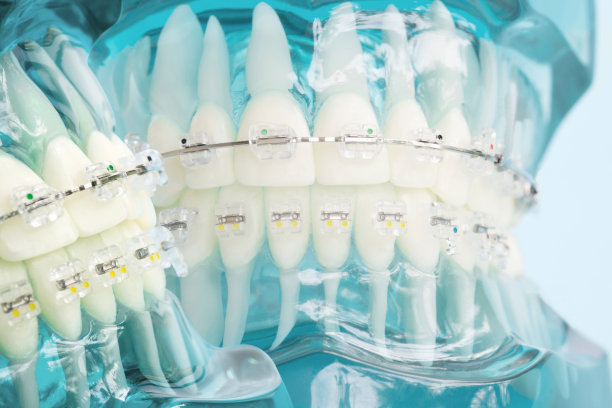The Impact of Periodontal Disease on Overall Health and Its Role in Systemic Conditions and Disease Prevention Strategies
Summary: Periodontal disease, often overlooked, significantly impacts overall health and is intricately linked to systemic conditions. This article explores how periodontal disease affects heart health, diabetes, respiratory diseases, and cognitive function. It emphasizes the importance of prevention strategies, including regular dental visits and proper oral hygiene. By understanding the systemic implications of periodontal disease, individuals and healthcare providers can work together to mitigate health risks. This exploration underscores the need for greater awareness and proactive measures in dental care to enhance both oral and overall health.
1. Periodontal Disease and Heart Health

Research has shown a clear connection between periodontal disease and heart health. The inflammation caused by gum disease can lead to artery inflammation, increasing the risk of cardiovascular issues. As bacteria from the mouth enter the bloodstream, they might contribute to atherosclerosis, a condition characterized by the hardening of arteries, which can lead to heart attacks and strokes.
Individuals suffering from periodontal disease are often at a higher risk for heart disease due to the inflammatory responses triggered by the infection. This systemic inflammation can cause changes in blood vessels and lead to clot formation, heightening the potential for cardiovascular events. Thus, maintaining healthy gums is not just vital for oral health but is also crucial for protecting heart health.
Preventative strategies, such as routine dental check-ups and effective oral hygiene practices, can significantly reduce the impact of periodontal disease on heart health. Regular cleaning and monitoring can help mitigate the inflammatory response, reducing overall cardiovascular risk.
2. Periodontal Disease and Diabetes Connection
The relationship between diabetes and periodontal disease is bidirectional. Poor glycemic control in diabetic patients increases the risk of developing periodontal disease, which, in turn, can exacerbate diabetes management difficulties. The inflammation resulting from gum disease can disrupt insulin function and resistance, making it harder for individuals with diabetes to maintain blood sugar levels.
Studies have demonstrated that patients with diabetes are more susceptible to periodontal infections. This increased vulnerability requires diligent oral care to prevent severe periodontal complications. Managing periodontal health can improve glycemic control, highlighting the significance of integrated care approaches for individuals affected by both conditions.
Implementing comprehensive dental care involving regular periodontal screenings and educating diabetic patients on the importance of oral health in managing their condition can help mitigate long-term complications. This preventative approach underlines the necessity of interprofessional collaboration in healthcare settings to achieve better health outcomes.
3. Periodontal Disease and Respiratory Illnesses
Periodontal disease can adversely affect respiratory health, particularly in individuals with pre-existing conditions like chronic obstructive pulmonary disease (COPD) and asthma. When bacteria from the oral cavity are aspirated into the lungs, they can lead to respiratory infections and inflammatory problems. This is particularly concerning for elderly patients and those with compromised immune systems.
The link between oral health and respiratory diseases is further compounded by poor oral hygiene practices, which can exacerbate the severity of respiratory infections. Studies have observed that maintaining good oral hygiene can significantly reduce the risk of respiratory complications, thereby enhancing the quality of life for patients with lung diseases.
Preventative measures, including education on the importance of oral care, effective plaque removal strategies, and regular dental cleanings, are essential in managing the risks related to respiratory health. By proactively addressing periodontal health, individuals can contribute to better respiratory outcomes and overall well-being.
4. Periodontal Disease Influencing Cognitive Function
Emerging research indicates that periodontal disease may significantly influence cognitive function and the risk of developing conditions such as Alzheimer’s disease. Chronic inflammation and bacteria related to periodontal disease can reach the brain, potentially leading to neurodegenerative processes. This connection raises concern about the long-term effects of gum disease on brain health.
Several studies have correlated poor oral health with an increased risk of cognitive decline, emphasizing the need for preventive care. The inflammation associated with periodontal disease may trigger responses that accelerate cognitive deterioration, particularly in older adults. Promoting awareness about the importance of oral health in maintaining cognitive function is essential for timely interventions.
A proactive approach involving dental professionals to educate patients about the connection between oral and brain health can foster better health practices. Regular check-ups and maintaining good oral hygiene can serve as effective preventive strategies to minimize the risk of cognitive impairment.
In summary, the impact of periodontal disease extends far beyond oral health, affecting various systemic conditions such as cardiovascular health, diabetes, respiratory illnesses, and cognitive function. Awareness and preventive strategies play crucial roles in integrating oral care into holistic health approaches.
By prioritizing oral health, individuals can improve their overall well-being and reduce the risks associated with systemic diseases. A collaborative effort between dental and medical professionals is vital for effective prevention and management strategies. Such integrated care will lead to healthier lives enriched by well-rounded healthcare practices.
This article is compiled by Vickong Dental and the content is for reference only



